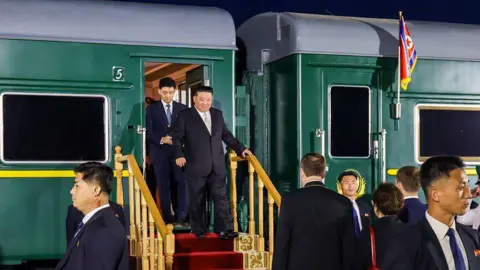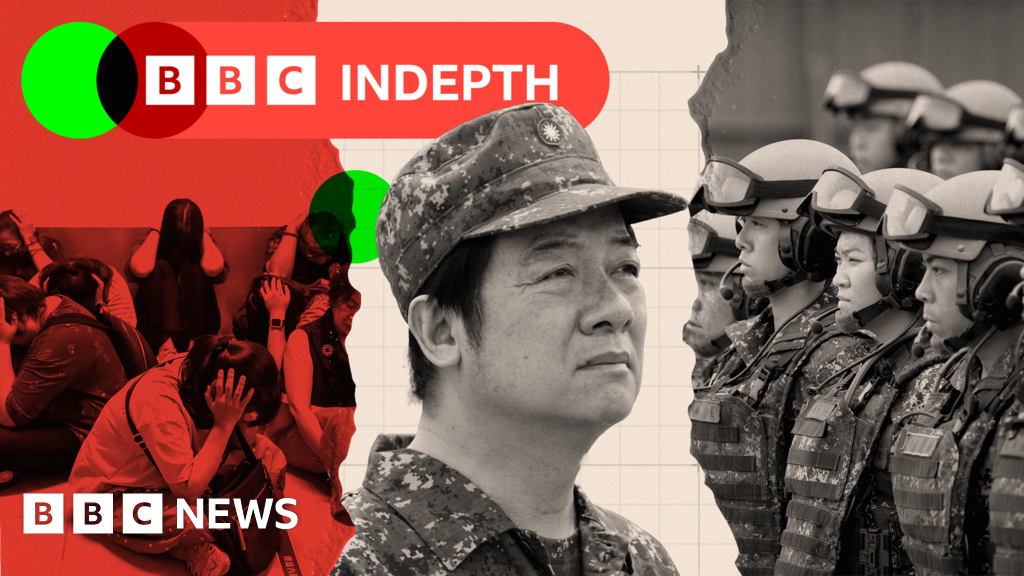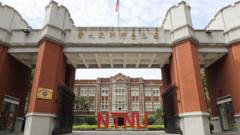In a landmark event dubbed the "Great Recall," thousands of voters in Taiwan took to the polls this past Saturday to determine the fate of several Kuomintang lawmakers accused of being too sympathetic to China. Preliminary results suggest that none of the politicians facing recall have lost their seats, allowing the opposition party to maintain its majority in the Legislative Yuan for now.
This unprecedented recall movement, steered by civic groups and framed as a battle for Taiwan's democracy, saw participation from residents across 24 districts, all currently represented by the Kuomintang. Taiwanese society has become sharply divided over the issue, with large demonstrations and heated rhetoric from both sides regarding the perceived influence of Beijing on local politics.
Political analysts had closely monitored the outcome of this vote, as its failure to unseat any lawmakers could signal increased polarization and emboldened dissent within the legislature. The backdrop to this recall election includes significant results from the January 2024 presidential elections, where the Democratic Progressive Party (DPP) won the presidency, but the opposition retained major representation in parliament.
The push for recall votes gained momentum during the May 2024 Bluebird movement protests, in which citizens expressed outrage against what they viewed as collusion between the Kuomintang and Chinese interests. Allegations arose after a group of Kuomintang lawmakers visited China, further fueling suspicions among the populace.
Civic groups championing the recall launched petitions against specific lawmakers, calling for accountability and transparency regarding their ties to Beijing. In response, supporters of the Kuomintang initiated counter-petitions aimed at certain DPP legislators, leading to a highly charged atmosphere in Taiwanese politics.
With voter turnout deemed crucial to the recall's success—requiring that a majority support the motion and that it exceeds 25% of registered voters—the civic groups undertook extensive campaigns through social media and public engagements. Conversely, the Kuomintang rallied its base to thwart the recall, framing the movement as a strategic tactic by the DPP to regain legislative control.
Despite the DPP's initial distancing from the Great Recall movement, they eventually expressed support, indicating their alignment with public sentiment and pledging to help pro-recall groups. Beijing, observing from a distance, criticized the DPP's actions, accusing its leaders of draping dictatorial behaviors in the guise of democratic processes. As Taiwan faces an uncertain political future, the implications of the Great Recall vote are likely to reverberate through the island’s complex political landscape in the months ahead.
This unprecedented recall movement, steered by civic groups and framed as a battle for Taiwan's democracy, saw participation from residents across 24 districts, all currently represented by the Kuomintang. Taiwanese society has become sharply divided over the issue, with large demonstrations and heated rhetoric from both sides regarding the perceived influence of Beijing on local politics.
Political analysts had closely monitored the outcome of this vote, as its failure to unseat any lawmakers could signal increased polarization and emboldened dissent within the legislature. The backdrop to this recall election includes significant results from the January 2024 presidential elections, where the Democratic Progressive Party (DPP) won the presidency, but the opposition retained major representation in parliament.
The push for recall votes gained momentum during the May 2024 Bluebird movement protests, in which citizens expressed outrage against what they viewed as collusion between the Kuomintang and Chinese interests. Allegations arose after a group of Kuomintang lawmakers visited China, further fueling suspicions among the populace.
Civic groups championing the recall launched petitions against specific lawmakers, calling for accountability and transparency regarding their ties to Beijing. In response, supporters of the Kuomintang initiated counter-petitions aimed at certain DPP legislators, leading to a highly charged atmosphere in Taiwanese politics.
With voter turnout deemed crucial to the recall's success—requiring that a majority support the motion and that it exceeds 25% of registered voters—the civic groups undertook extensive campaigns through social media and public engagements. Conversely, the Kuomintang rallied its base to thwart the recall, framing the movement as a strategic tactic by the DPP to regain legislative control.
Despite the DPP's initial distancing from the Great Recall movement, they eventually expressed support, indicating their alignment with public sentiment and pledging to help pro-recall groups. Beijing, observing from a distance, criticized the DPP's actions, accusing its leaders of draping dictatorial behaviors in the guise of democratic processes. As Taiwan faces an uncertain political future, the implications of the Great Recall vote are likely to reverberate through the island’s complex political landscape in the months ahead.


















